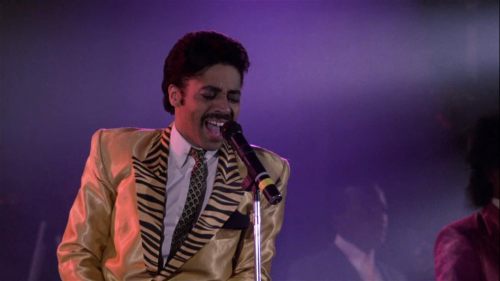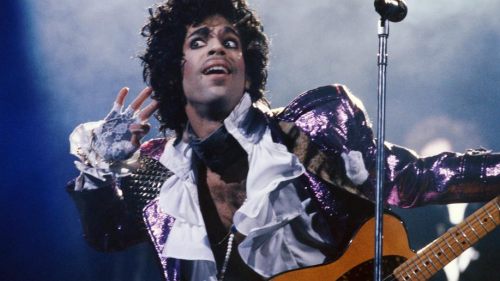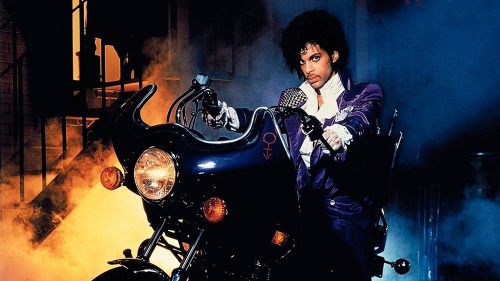Prince’s DIRTY MIND: I Love You More Than I Did When You Were Mine
I was ten years old when Prince entered my universe for the first time — the song was “The Most Beautiful Girl in the World,” and I listened to it obsessively. The falsetto. The sound effects: tear drops, ticking clocks. The refrain was, “It’s plain 2 see U’re the reason that God made a girl,” and then Prince rapped, “this kind of beauty is the kind that comes from inside.” It was unlike anything I’d heard before. Prince’s love was mythic, otherworldly, the song communicating cosmic intensity. For a long while after that, I only knew the most iconic image of him: a mysterious figure on a purple motorcycle emerging from suede fog. I found Prince again when I was just out of college, when I heard “When You Were Mine” for the first time, and I discovered Dirty Mind.
Dirty Mind was different from the Prince I thought I’d known — it was stripped down, intimate, just drums and keyboards and a Fender Telecaster. I would come to love the baroque ecstasy of Purple Rain and the rest of his catalogue, but Dirty Mind was the first Prince album I ever heard, and I thrilled at feeling like he was telling me a dirty secret. “When You Were Mine” unveiled its meaning slowly, like a lover undressing, at first listen seeming like just another love song about a woman who had strayed, and Prince forgave her her trespasses. Listening again, the lyrics started to suggest a threesome, bisexuality, that the man “sleeping in between the two of us” wasn’t just figurative. It wouldn’t be until 1984 that he created his “emotional autobiography” Purple Rain, but 1980’s Dirty Mind was his essence, a declaration: Prince revealed himself to us, and he hinted at who he would become.
Prince had shyly exposed himself with “I Wanna Be Your Lover” from his 1979 self-titled album when he sang, “I wanna be the only one that makes you come…running.” He had creative control of his first two records, but they were “overseen” by record company and management representatives. Prince recorded Dirty Mind in isolation in 1980 in a rented house on Lake Minnetonka and practically lived in his ramshackle basement studio, with a tape machine held together with baling wire and patches, the drum booth under water. Dirty Mind was self-produced, self-contained, nearly every song written and performed by Prince, made with what recording engineer Don Batts called Prince’s “one-take magic.” Prince explained, “This album was all supposed to be demo tapes, that’s what they started out to be. So they were demos, and I brought them out to the coast and played them for the management and the record company. They said, ‘The sound of it is fine. The songs we ain’t so sure about. We can’t get this on the radio. It’s not like your last album at all.’ And I’m going, ‘But it’s like me.’” He insisted he wasn’t deliberately being provocative — he was deliberately being himself.
A wall of bedsprings behind him, wearing nothing but a flasher’s trench coat, a bandana, and black bikini briefs, Prince offered himself to us on thecover of Dirty Mind. Many were scandalized by the image, and some record-store owners refused to put the album on their shelves. Billboard’s founding R&B editor Jean Williams prudishly tried to describe it: “Maybe it’s meant to be sexy. The back cover gets better (or worse). Prince is lying down with the same ‘outfit,’ however, this time you get a look at his legs and what is he wearing? A pair of thigh high stockings. The effect is one of a nude man dressed in a pair of thigh high stockings.” Music critic Robert Christgau’s response to the album was more flattering, and correct: “Mick Jagger should fold up his penis and go home.”
But Dirty Mind transcended smut, it was more than a Penthouse letter: the album conveyed Prince’s complexity. He made himself vulnerable in his expressions of desire, following a track like “Do It All Night” with “Gotta Broken Heart Again.” He was also a pacifist: “Partyup” was his antiwar song, and his politics were simple: “Really, that song is just about people who’d rather have a good time than go and shoot up one another.”
Prince thanks God in the liner notes of Dirty Mind, which some found incongruous for an album claiming that “incest is everything it’s said to be” (“Sister”) and includes an homage to “Head.” Minister Dan Peters of Zion Christian Center in Minnesota felt that Prince was no Christian, asserting, “his Lord is a penis.” But Prince explained: “There has always been a dichotomy in my music. I’m searching for a higher plane, but I want the most of being on earth. When you have faith, serotonin starts pumping in your brain. It’s the same as when you have an orgasm. Sex is spirituality. Flesh on flesh, it’s the highest form of spirituality here on earth.” Prince’s sexuality was subversive, and his revolution was not angry but joyous, in stark contrast to the glowering frigid rebellion of punk.
The thigh-high stockings that offended Jean Williams reflected another contrast in Prince’s music, and former sound engineer Susan Rogers described it best: “I sensed from him a very strong feminine energy as well as a very strong masculine energy. It was almost like working with a man and a woman.” As sexual as Prince was, he loved women as human beings and not as objects, his pleasure depended on their pleasure, and his music spoke to me in a way other men hadn’t. Rolling Stone’s Ken Tucker wrote, “[Dirty Mind] may be the most generous album about sex ever made by a man,” and Prince’s collaborator Lisa Coleman described him as “a fancy lesbian.” Prince even created a female alter ego Camille, who sang “If I Was Your Girlfriend” off Sign o’ the Times. Prince was most comfortable writing for women and composed songs for the Bangles, Mavis Staples, Chaka Khan, Sheena Easton, TLC, Patti LaBelle, Vanity 6, Madonna, Sheila E, Alicia Keys.
Prince sang in “I Would Die 4 U”: “I’m not a woman, I’m not a man / I am something that you’ll never understand.” In the '90s he would rebrand himself not with a name but a symbol that blurred male and female. Prince’s old publicist Howard Bloom said, “Prince is normally afraid of men . . . He’s most comfortable around women,” suggesting childhood bullying was to blame. In interviews, Prince hinted at childhood loneliness, teasing, running away from home. He told Oprah in 1996 that there were “two people inside of [him],” that he’d created a kinder, feminine personality when he was five years old to deal with being bullied for his size, “you know, somebody to care about you and love you and be your friend and not ridicule you.”
Prince married the feminine and masculine, the sacred and the profane, he was a sex messiah and the Second Coming. He worshipped the individual, the unconventional, and he rejected labels. “Uptown” was a testament to this, a song about a utopia that freedom to be yourself no matter who you are: “We don’t let society tell us how it’s supposed to be / Our clothes, our hair, we don’t care / It’s all about being there,” and “White, Black, Puerto Rican, everybody just a-freakin’.” “Uptown” was a glimpse into Prince’s mind through a keyhole, into a soft-focus world of lace and wet-look bodysuits and platform boots, of dance music sex romance. “Uptown” was Prince’s vision of heaven.
Prince was complex, but he wasn’t contradictory — he was a transcendent, illimitable being, and yet deeply human. He was a homebody, an eccentric, who had trouble expressing himself and turned to music, who hadn’t conquered his shyness so much as he’d made it work for him. He taught us not to erase what made us different but to embrace it. He became the nurturing persona he’d created for himself as a bullied child, somebody who cared about us and loved us and was our friend and didn’t ridicule us. I believe that’s what Prince meant to the world, and I know that’s what Prince meant to me.



